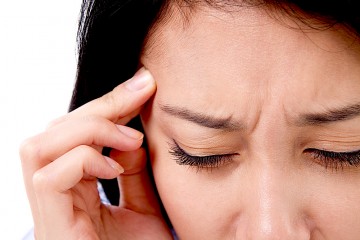Tension Headaches? It May Be TMJ
 One of the harder things to say as a doctor, and one of the most frustrating comments to receive as a patient is, “It is likely due to stress.” I have been on both sides of this conversation. I know when I suggest a physical ailment may be due to stress, my patient hears, “It is all in your head.” Medically I know this is not true. Symptoms caused by stress are very real, and in some cases, can just be a nuisance. In other cases, they can be debilitating. Still, even though I know better, when I was self-diagnosed tension related TMJ, I felt like I should be able to talk myself out of it.
One of the harder things to say as a doctor, and one of the most frustrating comments to receive as a patient is, “It is likely due to stress.” I have been on both sides of this conversation. I know when I suggest a physical ailment may be due to stress, my patient hears, “It is all in your head.” Medically I know this is not true. Symptoms caused by stress are very real, and in some cases, can just be a nuisance. In other cases, they can be debilitating. Still, even though I know better, when I was self-diagnosed tension related TMJ, I felt like I should be able to talk myself out of it.
I wish I could say I suffered in silence, but the truth is I think I complained a lot. I had constant jaw pain, ringing in my ears, neck pain, and could not chew anything hard. I had intermittent severe headaches and couldn’t sleep. I am sure I was intolerable to live with. Finally, I sought some help, and thank goodness for my marriage, got relief. It still flares once in a while, usually when I am more stressed than my baseline somewhat manageable anxiety level. Now, I am quick to seek treatment.
TMJ, or temporomandibular joint disorder, can be caused by different things, not just stress. In my case, I believe I clench when I am sleeping (and when I am yelling at my kids) triggering inflammation. In other cases, it can be due to muscle, bone or nerve damage. If you suffer from any of the following symptoms chronically, make an appointment with a TMJ specialist. Once a diagnosis is made, there are many treatment options available to you. I can attest the symptoms can be severe, and there is no need to suffer.
TMJ Symptoms include:
- headache
- jaw pain
- face pain
- jaw popping or clicking
- ringing in your ears (tinnitus)
- vertigo (dizziness)
- numbness and tingling in the hands or fingers




















